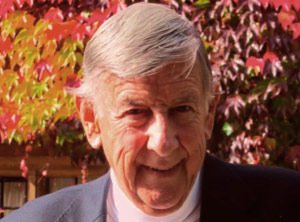Podcast: Play in new window | Download | Embed
Subscribe: RSS
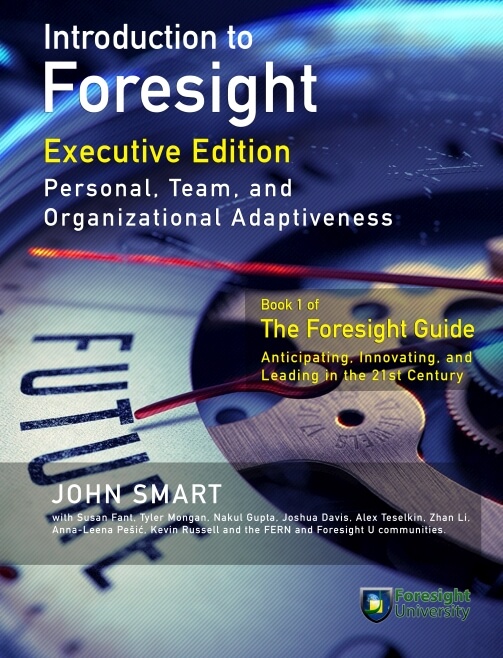 John Smart has taught and written for over 20 years on topics like foresight and futurism as well as the drivers, opportunities, and problems of exponential processes throughout human history. John is President of the Acceleration Studies Foundation, co-Founder of the Evo-Devo research community, and CEO of Foresight University. Most recently, Smart is the author of Introduction to Foresight, which in my view is a “one-of-a-kind all-in-one instruction manual, methodological encyclopedia, and daily work bible for both amateur and professional futurists or foresighters.”
John Smart has taught and written for over 20 years on topics like foresight and futurism as well as the drivers, opportunities, and problems of exponential processes throughout human history. John is President of the Acceleration Studies Foundation, co-Founder of the Evo-Devo research community, and CEO of Foresight University. Most recently, Smart is the author of Introduction to Foresight, which in my view is a “one-of-a-kind all-in-one instruction manual, methodological encyclopedia, and daily work bible for both amateur and professional futurists or foresighters.”
During our 2-hour conversation with John Smart, we cover a variety of interesting topics such as the biggest tech changes since our 1st interview; machine vs human sentience; China’s totalitarianism and our new geostrategic global realignment; Citizen’s Diplomacy, propaganda, and the Russo-Ukrainian War; foresight, futurism and grappling with uncertainty; John’s Introduction to Foresight; Alvin Toffler’s 3P model aka the Evo-Devo Classic Foresight Pyramid; why the future is both predicted and created despite our anti-prediction and freedom bias; Moore’s Law and Accelerating Change; densification and dematerialization; definition and timeline to general AI; evolutionary vs developmental dynamics; autopoiesis and practopoiesis; existential threats and why we must delay nuclear power; whether we live in a child-proof universe; the Transcension Hypothesis.
My favorite quote that I will take away from this interview with John Smart is:
We must learn to see how physics, chemistry, biology, human culture, and technology are each catalysts for new evolutionary freedoms and new developmental constraints, at the same time. We must also guard against both overly free and overly determined models of the future. It is easy to get out of this evo-devo balance, and oversimplify reality. Exponential Progress: Thriving in an Era of Accelerating Change, PDF page 29
As always you can listen to or download the audio file above or scroll down and watch the video interview in full. To show your support you can write a review on iTunes, make a direct donation, or become a patron on Patreon.
Who is John Smart?
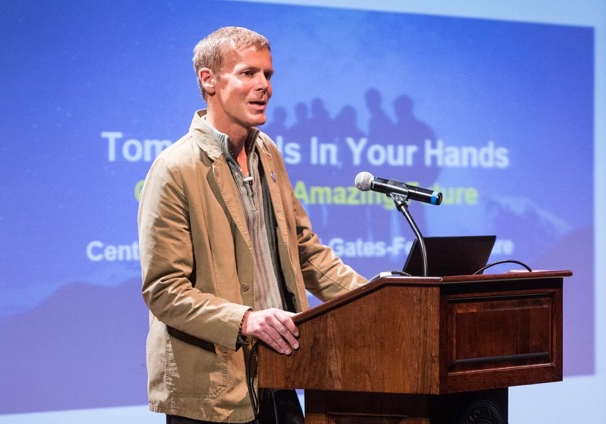 John Smart is a student of strategic and adaptive foresight, global futures, exponential processes, and complex systems. He is President of the Acceleration Studies Foundation nonprofit (est. 2003), co-Founder of the Evo-Devo Universe complex systems research community (est. 2008), and CEO of Foresight University, a foresight learning, and development company (est. 2016). For twenty years, John has taught and written on foresight development and the drivers, opportunities, and problems of exponential processes throughout human history. John has a B.S. in business administration from UC Berkeley, an M.S. in futures studies from the University of Houston, and an M.S.-equivalency in physiology and medicine from UCSD School of Medicine. He has an honorary Ph.D. in Technology Education from the University of Advancing Technology (2008) an Outstanding Faculty Award from the California Law Enforcement Command College (2011), and he lectures on personal and team foresight practice, leadership, and technological change at the Naval Postgraduate School (since 2012). He blogs at Medium.com, and his speakers’ website is JohnMSmart.com. John lives in Ann Arbor, MI with his wife and two young children.
John Smart is a student of strategic and adaptive foresight, global futures, exponential processes, and complex systems. He is President of the Acceleration Studies Foundation nonprofit (est. 2003), co-Founder of the Evo-Devo Universe complex systems research community (est. 2008), and CEO of Foresight University, a foresight learning, and development company (est. 2016). For twenty years, John has taught and written on foresight development and the drivers, opportunities, and problems of exponential processes throughout human history. John has a B.S. in business administration from UC Berkeley, an M.S. in futures studies from the University of Houston, and an M.S.-equivalency in physiology and medicine from UCSD School of Medicine. He has an honorary Ph.D. in Technology Education from the University of Advancing Technology (2008) an Outstanding Faculty Award from the California Law Enforcement Command College (2011), and he lectures on personal and team foresight practice, leadership, and technological change at the Naval Postgraduate School (since 2012). He blogs at Medium.com, and his speakers’ website is JohnMSmart.com. John lives in Ann Arbor, MI with his wife and two young children.

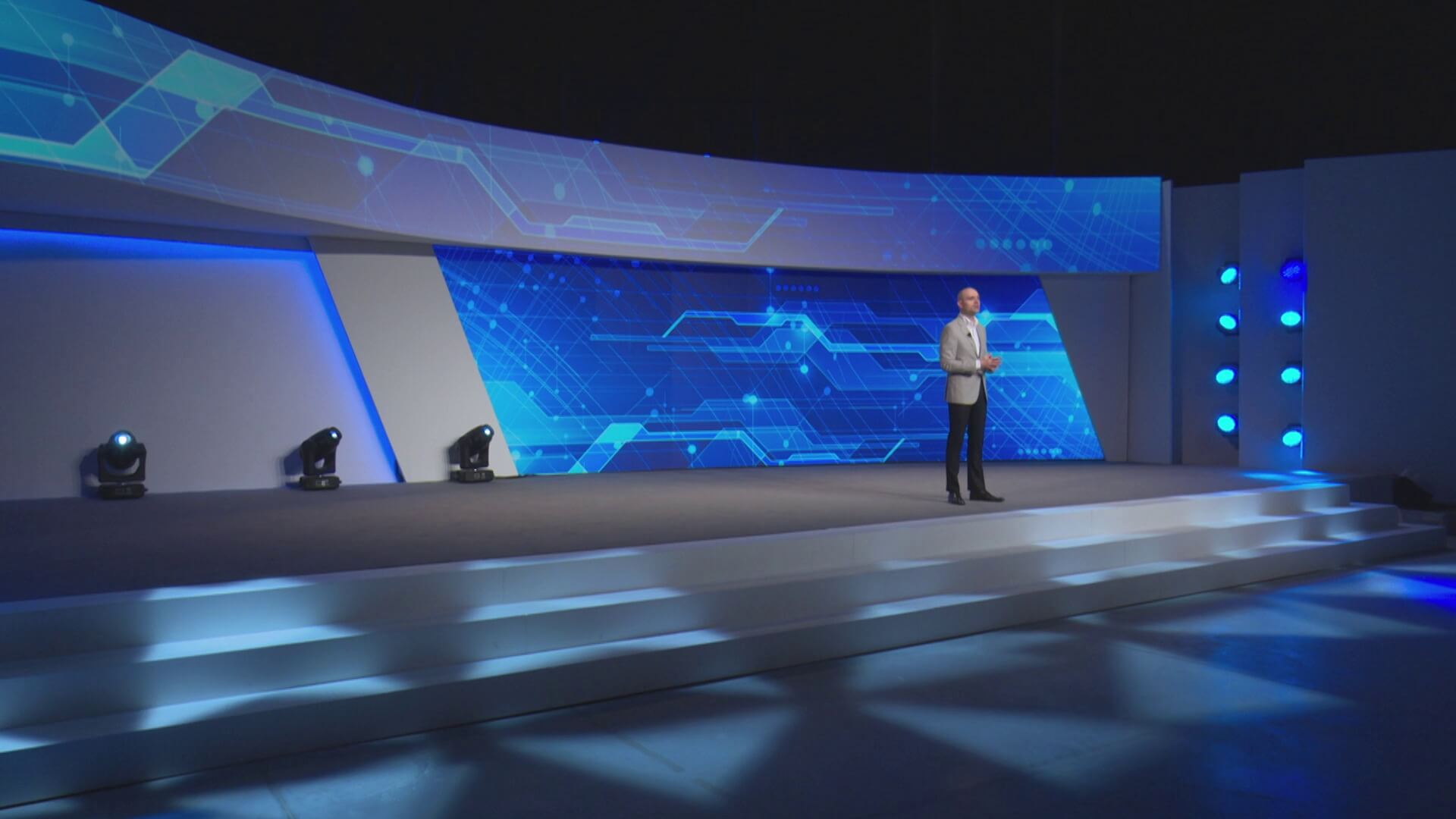
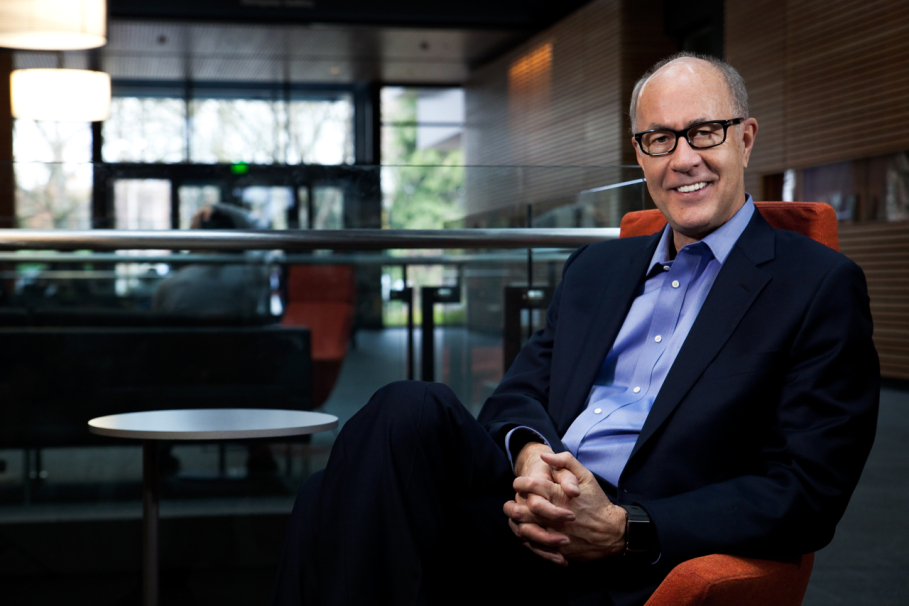

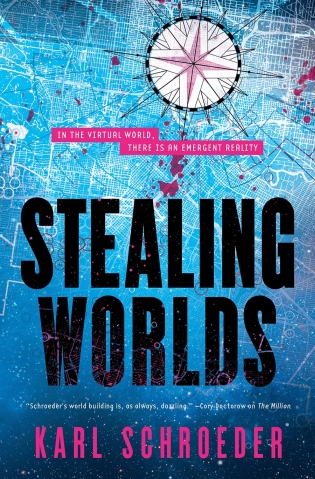 People often ask me about my most favorite interview I have ever done. And my usual reply is that interviews are like children, even if we have our favorites it is not wise to express that outwardly because all kinds of problems will follow. And yet, after having published nearly 250 episodes of my podcast, I can hardly remember one that has had a greater impact on me than my
People often ask me about my most favorite interview I have ever done. And my usual reply is that interviews are like children, even if we have our favorites it is not wise to express that outwardly because all kinds of problems will follow. And yet, after having published nearly 250 episodes of my podcast, I can hardly remember one that has had a greater impact on me than my  Karl thinks that AI is a bit of a red herring; complex systems and predictability; why Global Warming is not a problem to be solved but a constraint to work within; pre-apocalyptic moments as a possibility to create something new; why code is law and technology is a value;
Karl thinks that AI is a bit of a red herring; complex systems and predictability; why Global Warming is not a problem to be solved but a constraint to work within; pre-apocalyptic moments as a possibility to create something new; why code is law and technology is a value;  A few weeks ago I got interviewed by Ricardo Lopes for
A few weeks ago I got interviewed by Ricardo Lopes for 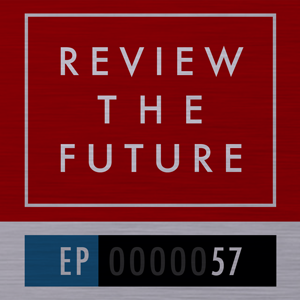 A few weeks ago I got interviewed on
A few weeks ago I got interviewed on 

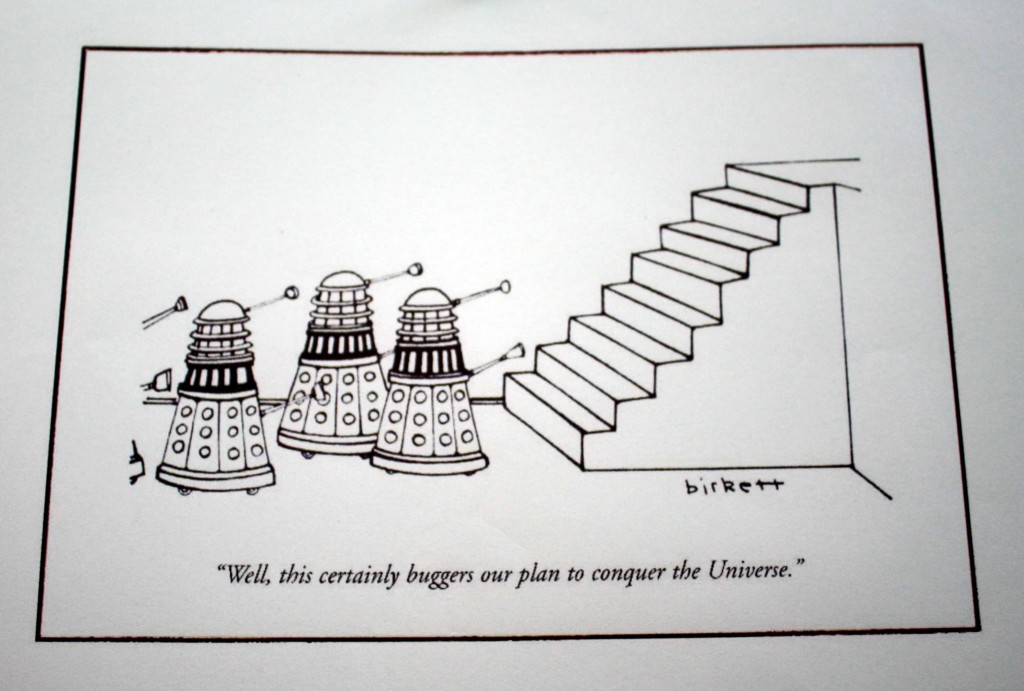

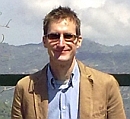
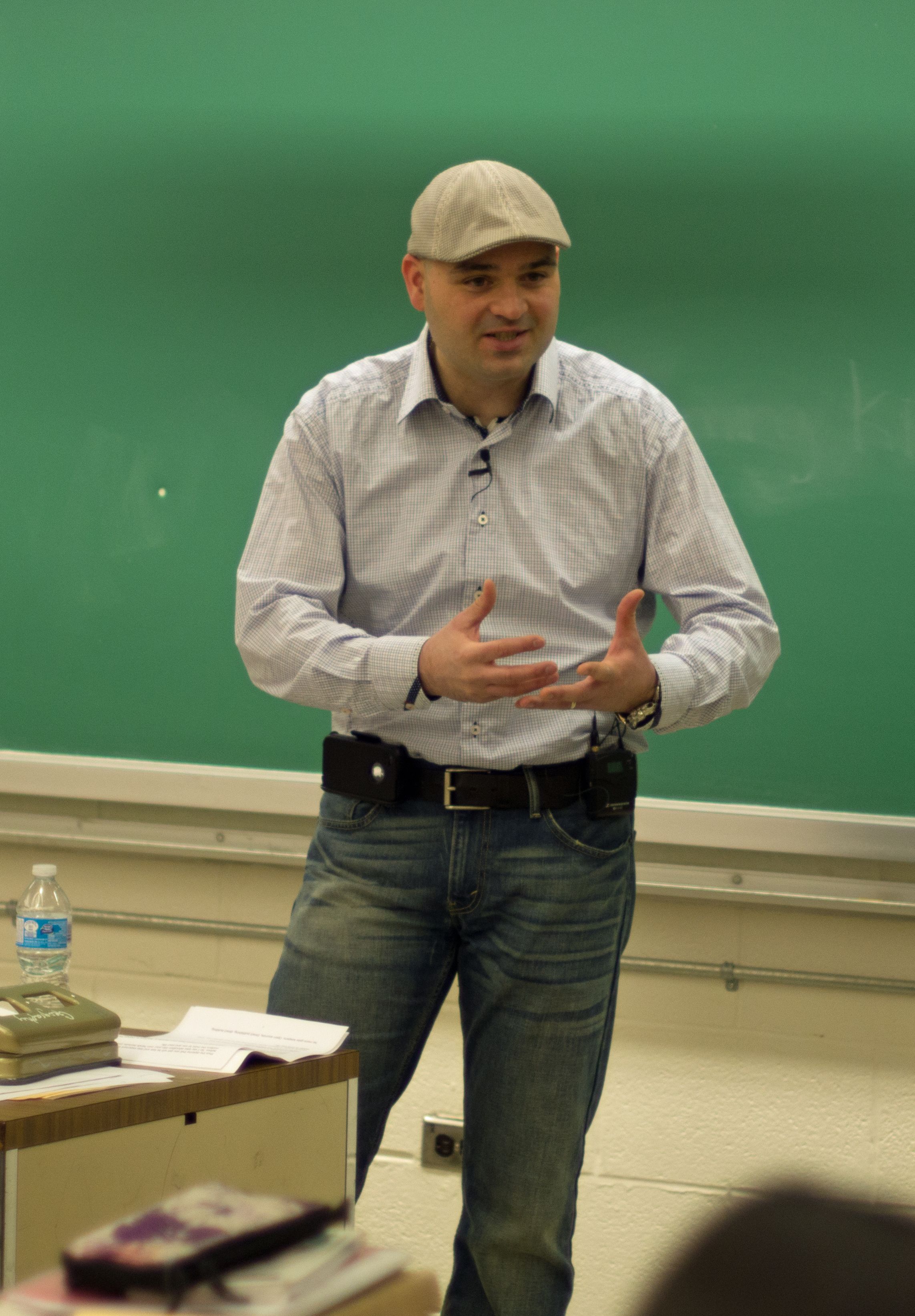
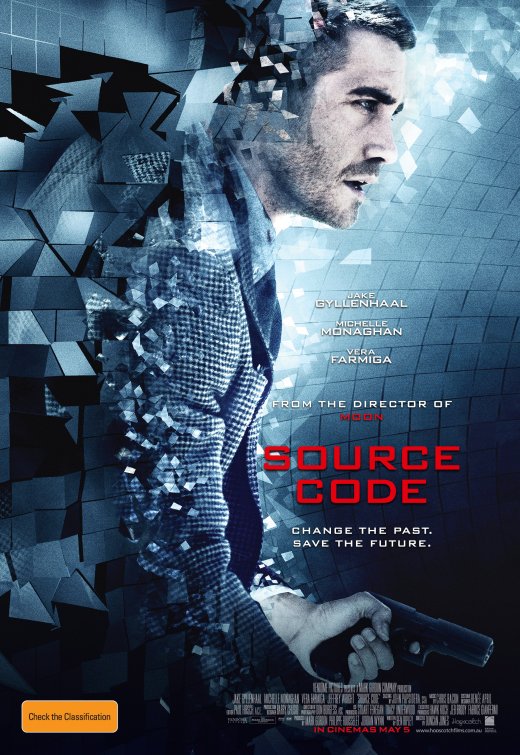 The new movie, Source Code, contains lots of technology that people interested in
The new movie, Source Code, contains lots of technology that people interested in 

 Yesterday I was privileged to have an hour-long Skype interview with
Yesterday I was privileged to have an hour-long Skype interview with 